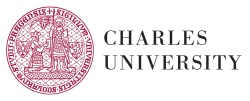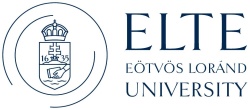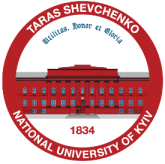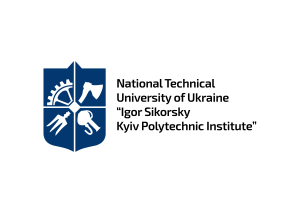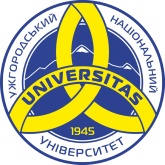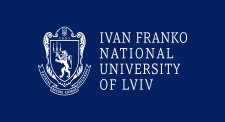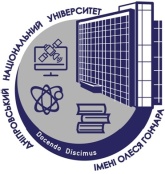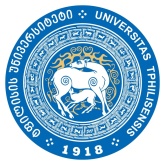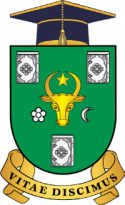Members
Partner universities from the EU
|
|
Charles University was founded in 1348. It is a publicly funded university which comprises a total of seventeen faculties, of which three are theological, six are faculties of the humanities and social sciences, five are medical and three are dedicated to the sciences. The university further includes four university institutes, five specialized centres, five special-purpose facilities and the Rectorate. The seat of the University is in Prague, where most of its faculties and other constituent parts are located, with the exceptions being the Faculty of Medicine in Pilsen, Faculty of Medicine in Hradec Kralove and the Faculty of Pharmacy in Hradec Kralove. Approximately 50,000 students are currently enrolled at the University. Four fifths of this number are engaged in on-site study, and more than half of those in the social sciences and humanities. Charles University educates students in a total of 300 degree programmes, 140 of which are for bachelor and master degrees and 160 for doctorates. |
|
|
|
University of Milan (UNIMI), established in 1924, contributes to society through the pursuit of education and research at the highest international levels of excellence. It is the only Italian member among the 23 prestigious Universities of the League of European Research Universities (LERU). With a teaching staff of about 2,111 tenured professors, 120 visiting professors, 1893 technical and administrative staff and with around 60,000 students, UNIMI is the largest university in Lombardy, one of the most dynamic and internationally-oriented EU regions. UNIMI offers several study programs that cover: i) Economics, Law and Social Sciences; ii) Humanities; iii) Medicine and Healthcare and iv) Science. The broad range of subjects taught, in the running 67 Undergraduate programs, 57 Master programs, 9 Single-cycle programmes, 33 Doctoral Programmes, 26 Vocational master’s courses, 85 short course, 65 postgraduate schools of professional specialization, attracts students from all of Italy and the whole world. The University also has a Choir and its own Orchestra, which actively contributes to the cultural life of the city and receives international acknowledgements on an increasingly frequent basis. |
|
|
|
The University of Warsaw is the largest university in Poland and best research centre in the country. Its academic community comprises 7 300 employees, more than 45 000 undergraduate and graduate students and 3 000 doctoral students. Besides 21 faculties, UW has also 30 academic and research centres. A wide range of studies in humanities, social, exact as well as natural sciences, including 25 English-language programmes, is provided by UW. The University works together with 800 international partners. Almost one-third of the UW budget, equal to 330 million euro, is devoted to research. In the present financial framework, UW scholars have won over 50 grants from the Horizon 2020 programme. Researchers from UW have received so far 14 grants from the most prestigious European competitions of the European Research Council (ERC). UW received the “HR Excellence in Research” award, conferred by the European Commission. In 2016, the University of Warsaw celebrated the 200th anniversary of its foundation. This year saw the beginning of the realization of a multiannual development plan (2016-2025) financed by the Polish government. With this funding, it will be possible to develop UW faculties and centres of humanities and social sciences. |
|
|
|
The University of Cologne is one of the oldest and largest universities in Europe. Due to its outstanding scientific achievements and the high quality and diversity of its degree programmes, it enjoys an excellent international reputation. The UoC’s mission is to create, preserve and impart knowledge, to offer its students and early-career academics outstanding academic education, to qualify them for both academic and professional careers, to promote cutting-edge research and to drive innovation while focusing on the constantly changing needs and challenges of today’s society. |
|
|
|
Founded in 1635, Eötvös Loránd University (ELTE) is the oldest, largest as well as most prestigious university in Hungary. As the leading higher education and research institution in Hungary, it draws academics from all over the country, and beyond. The name of ELTE stands for “knowledge”, “opportunities”, “competition”, “openness” and “community”. Driven by its standard of highest quality research, the university cultivates a strong focus on international networks and projects. |
|
|
|
By joining two leading universities (Paris-Sorbonne and Pierre & Marie Curie Universities) at the centre of Paris, an exceptional centre of knowledge has been recreated under the world-renowned Sorbonne name. Sorbonne University is a world-class research university, presenting the comprehensive disciplinary range of arts, humanities, social sciences, natural sciences, engineering and medicine. The University offers its 55,400 students the best educational opportunities for the success of each of their personal and professional projects, through monodisciplinary, bi-disciplinary and interdisciplinary programs. In addition to Nobel Prizes, Fields Medals and other awards, the university has exceptional transdisciplinary institutes and is also the headquarters for the European Marine Biological Research Centre.International co-operation is expanded at Sorbonne University because it is more comprehensive, enabling its students, academic staff and researchers to increase their exchanges with the rest of the world. |
Partner universities from the associated countries of the Eastern Partnership
|
|
Taras Shevchenko National University of Kyiv is an university with a distinct research profile, and the leading contemporary academic and educational hub of Ukraine. With the independent Ukrainian nation arising, the University is facing new challenges and responsibilities. The academic experts of the future can be identified by a thorough professional knowledge and the ability to think creatively, with an understanding of the massive responsibility to be taken when working at the leading-edge of academic thought. Only a university with a long tradition of achievement and success both in teaching and in research could cope with such a mission. On 21 April 1994, Kyiv University was granted the status of "National" by Leonid Kravchuk, the President of Ukraine by Decree No 176/94, and on 25 November 1999 a further Decree, No 1496/99, of Leonid Kuchma, President of Ukraine at that time, significantly expanded the autonomous status of the university. |
|
|
Kyiv polytechnic institute (since 2016 – National Technical University of Ukraine “Igor Sikorsky Kyiv Polytechnic Institute”) is one of the largest technical universities in Eastern Europe; it was founded in 1898. The university ranks 4% of the best universities of the world according to the international rating QS and Webometrics. Igor Sikorsky Kyiv Polytechnic Institute trains 25 thousand of students, postgraduates, doctorates, including foreign students from neighbouring and far abroad countries. It offers programs for obtaining degrees of Bachelor, Master, PhD and Doctor of Science. The university has 14 faculties, 11 educational and scientific institutes, several design bureaux and engineering centres. It also has its own publishing house “Polytechnika”. As R&D institution, Igor Sikorsky Kyiv Polytechnic Institute has leading positions in the following areas: information and communication technologies, system analysis, electronics, radio engineering, electrical engineering, materials science and mechanical engineering, energy engineering, instrument making technologies, chemical technologies, chemical engineering. |
|
|
Uzhhorod National University belongs to classic universities of Ukraine, holding the highest 4th level of accreditation. It is one of the largest and best universities of the Carpathian region, situated in a wonderful student city Uzhhorod on the slopes of the Carpathian Mountains in Western Ukraine. The university is young, it was founded in 1945 but it has acquired a well-deserved reputation in a scientific world, becoming the landmark and the alma-mater for generations of students who are working successfully both in Ukraine and other countries of the world. Uzhhorod University has formed powerful scientific schools of the world acclaim. It collaborates with many top universities abroad. |
|
|
Ivan Franko National University of Lviv is a classical higher educational establishment with powerful scientific schools, old traditions and modern innovation approaches. Its principal aim is to provide high educational and scientific standards, cultural, social needs of a person, the society and state in the process of training highly qualified specialists. The University activity is formed on the grounds of preserving Ukrainian culture and traditions, developing national consciousness and identity. |
|
|
Oles Honchar Dnipro National University is an establishment of higher education in Dnipro, Ukraine. It was founded in 1918. The first four faculties were history and linguistics, law, medicine and physics and mathematics. Nowadays the university has level IV accreditation, with 20 faculty and 1,300 professors, 850 of them PhDs. The university has about 22,000 Ukrainian students and offers 87 majors. It has about 3,000 international students from 20 countries. It has strong ties with one of the world's largest rocket space centres, Yuzhnoye Design Bureau, and other industrial and scientific organizations in the Donetsk-Pridneprovsk area with population of more than 15 million people. Being a big education and research center, DNU provides training at all qualifications levels: Master's degree, Specialist's degree, Bachelor's degree. It prepares researchers and university teachers at the post-graduate and doctor of science courses. Second higher education can also be obtained. |
|
|
Tbilisi State University, or TSU, is one of the largest higher educational institutions, with approximately 22,000 students studying in seven faculties. Along with Bachelor’s, Master’s and Doctoral programs, the university implements higher vocational education courses, as well as short and long-term certification programs. Working in close cooperation with foreign universities, Georgian students can participate in exchanges and joint international educational programs to earn double academic degrees. Tbilisi State University is an active member of leading international education networks and is proud of its alumni, many of whom are now prominent professors, scientists and graduates, working in partnership with the European community, sometimes with worldwide recognition. TSU offers a wide variety of degree programs at undergraduate, graduate and doctoral levels, and short-term courses in English that attract students from all over the world. The internationalization of TSU is fast-paced and aims at creating a multicultural environment that will enhance teaching and research opportunities. |
|
|
Moldova State University is based in Chișinău, the capital city of Moldova and one of the country’s most economically prosperous areas. The city has a long and rich history, having been founded in 1436, and is located in the center of the country, on the river Bîc. The university recently celebrated its 70th birthday and is home to over 20,500 students. The mission of the Moldova State University is: training of highly qualified professionals for the national economy, able to work effectively in changing conditions of life and market economy; organization and development of basic and applied scientific research aimed at solving current socio-economic problems and implementing of the technology transfer of the university research results. |
